- Homepage
- Our green rainwater
Green rainwater harvesting
Green rainwater harvesting contains a series of blogs printed in the Witness, a regional newspaper from the Midlands in South Africa.
Harvesting rainwater is not rocket-science; we have found that storing it in an underground reservoir is the best way. It's a concept I first learned from the Dutch whilst living in the Netherlands.
Reticulation came fairly late to many of the older parts of the Netherlands where the masters of water management reside; 60% of the country lies beneath sea-level. We can learn from them.
In fact "nether" means beneath; under the land.
Green rainwater harvesting
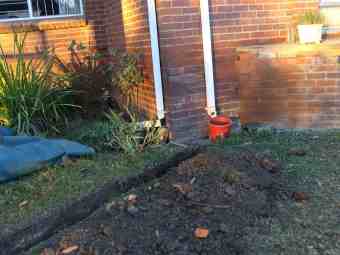 Harvesting with buckets. Is there an alternative?
Harvesting with buckets. Is there an alternative?Store the rain underground
Storing the water underground is much colder and thus less prone to the proliferation of bacteria. It is also cheaper than plastic or fibreglass tanks; and not as unsightly.
Generally it is being called Strengthening Climate Resilience. Reservoirs like this help cope with both flooding and droughts; in areas where the rainy season is relatively short, simply make them deeper or wider.
In fact what may be better would be to increase both the radius and the depth to 2.5 metres if you live in the Karoo; 47 cubes of rainwater. That is 12,400 gallons.
"Hundreds of surgeries have been cancelled as taps run dry at Gauteng public hospitals."
- November 16, 2023
Green rainwater harvesting turned out to be a relatively inexpensive project. It was certainly cost-effective. In 2023 the materials would have cost about R20,000 for a 43kL reservoir; a little more today.
Ours is long paid-off giving us an almost unlimited supply of the pristine manna that descends from the heavens. It is all part of our determination to make our home resilient on the one hand; and do our small bit to preserve the planet on the other.
In fact it is all part of the Cyan Zone initiative; caring for both ourselves and Mother Earth.
The first step was to dig a hole; four strong men did it by hand in three-days.
First dig a hole
Then the semi-skilled men moved in, laying a reinforced concrete foundation and bricking up the double wall. Plastering was the only tricky part; a sealing compound should be included in the mix.
Next was the roof. Connecting the pump into the reticulation to our green home and the garden was not difficult; and an electrical supply. Solar power means we have completely free pristine-water the whole year round. That is climate resilience.
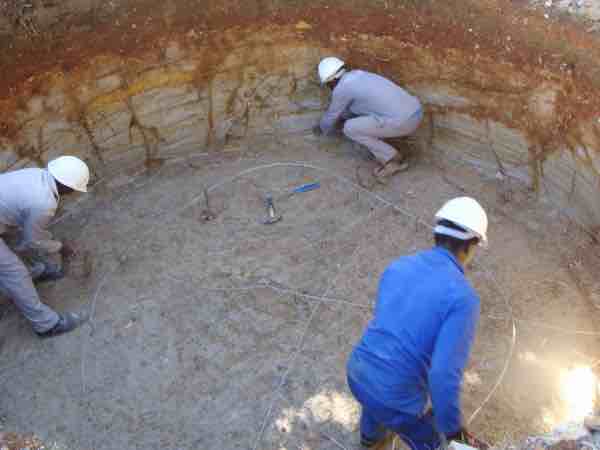
The real Preston
This is what we are now calling The Real Preston, a spoof on the self-oiler designed by McCoy for his steam engines. Methinks every single property in villages, towns and especially cities should be considering green rainwater harvesting.
It really was not a big project taking only two-weeks to complete for a relatively small sum; considering the freedom from drought and the foibles of an incompetent local authority that it has brought.
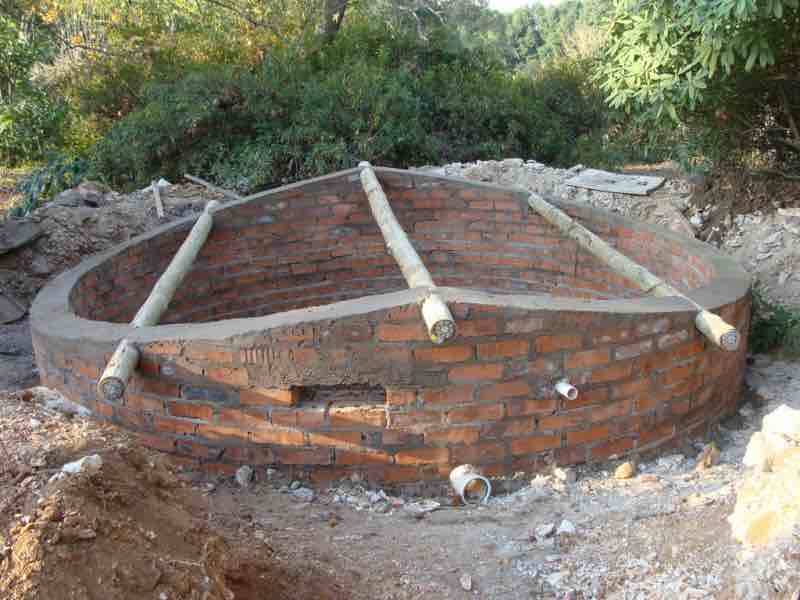
Rain collected from the gutters runs first into the sump seen in the foreground; most of the sediment settles to the bottom and the water overflows through a coarse filter for the main reservoir.
For more details you can read about it at our rainwater harvesting model.
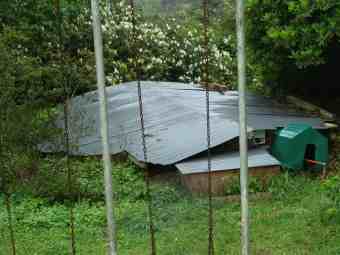
How safe is your drinking water?
How safe is our drinking water is a question we should all be weighing, without becoming neurotic. Are there alternatives?
The average person in the Western world consumes about 5 grams of plastic every week, most of it from our drinking water; that is the weight of a credit-card. If any of it ends up being deposited in the intima, the lining of the blood vessels then we have a 4.5 times greater chance of dying from an aneurism.
Where is our water is a cry that reverberates around South Africa. The provision fails weekly in every province, often for an extended period whether because of drought or incompetent municipalities that do not repair and maintain the reticulation.
It behooves each of us to practise green rainwater harvesting; or risk going without.
Another cry being heard is should agriculture and industry get priority for water and electricity?[2]
“We anticipate that green features are going to become more desirable as we encounter ongoing service-related challenges throughout SA.”
- Pam Golding Properties
An unnecessary upgrade in my opinion was to add a filtration and sterilisation plant; I have been drinking this pristine rainwater for eight-years without a problem.
One difficulty is that gutters need to be properly cleaned before the start of the rainy-season; and that sump that can be seen on the foreside of the reservoir. It is unpleasant work but should be done anyway every month. It takes about half an hour; a small price to be freed from the fear of stroke and heart attack.
"We are what we love, not what loves us."
- Charlie Kaufman
Increasingly there are calls from within government for water solutions; we have one.
Icy-cold water
Scientists have now agreed that the death of 330 elephants in Botswana was caused by a neurotoxin produced by the cyanobacteria that flourish in warm-water. This same bug is rampant in at least half of South Africa's dams. Runoff from fertiliser and sewerage plants producing large amounts of phosphorus has been fingered. It is not unlike botulism in many respects.
Reports state that it is difficult to make the contaminated water potable; it is just one more reason to consider green rainwater harvesting. It saves money, tastes far better and will not have poisonous byproducts from post-chlorination or the cyanobacterium toxin; and contributes to saving the planet. Can we ask for more?
Oh I forgot to mention the sheer joy of an unlimited full-stream shower enjoyed every day, taken without guilt; that water would simply have flowed into the ground in any case. We just diverted it via our green home.
Water solutions
So there's nothing new about our water solutions, but few countries have realised the problem can easily be solved; not with more hugely expensive dams but instead small relatively cheap underground reservoirs.
Bermuda is one of the few countries in the world where gutters and an underground cistern are mandatory by law; for them there simply is no other solution. We choose green rainwater harvesting over that from the utility because it's the right thing to do.
Rain water storage should worldwide be central to everyone's thinking today.
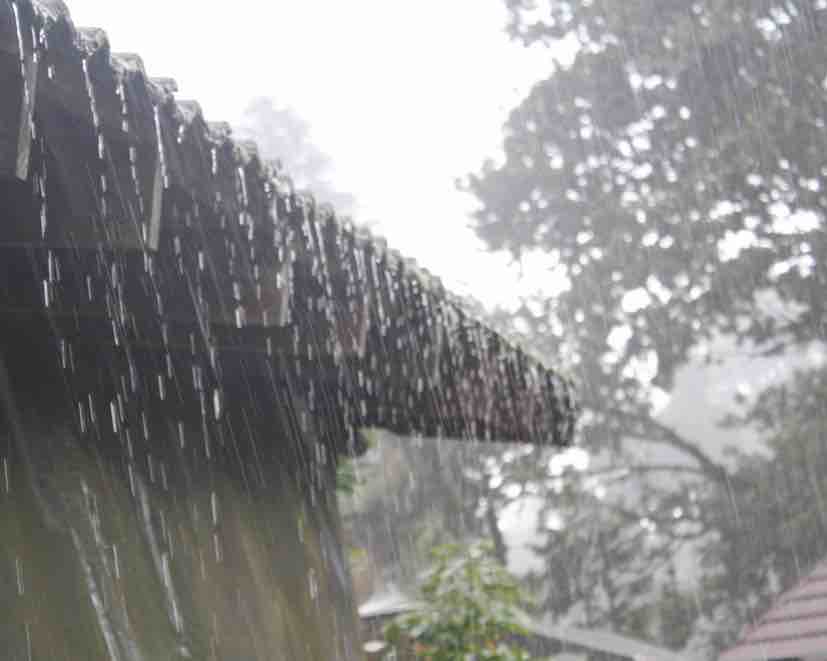
It all started by harvesting the rain with a 44-gallon drum before we had gutters.
"For God draws up the drops of water; he distils his mist in rain which the skies pour down and drop upon man abundantly. He gives food in abundance."
- Job 36
It's such a shame seeing all that water going to waste. On the other side of the equation though cleaning the gutters becomes a very important chore; one all home-owners should do anyway.
Rainwater harvests include a lot of crud that has to be cleaned out annually; it's not particularly onerous. At 77 I am still able to do it with ease; make sure that ladder is secure.
Can you stand on one leg for 10 seconds? If not don't venture up ladders; there is a specific exercise to help with balance.
When you get tired of your swimming pool, consider doing what these folks did; they have the perfect underground reservoir.
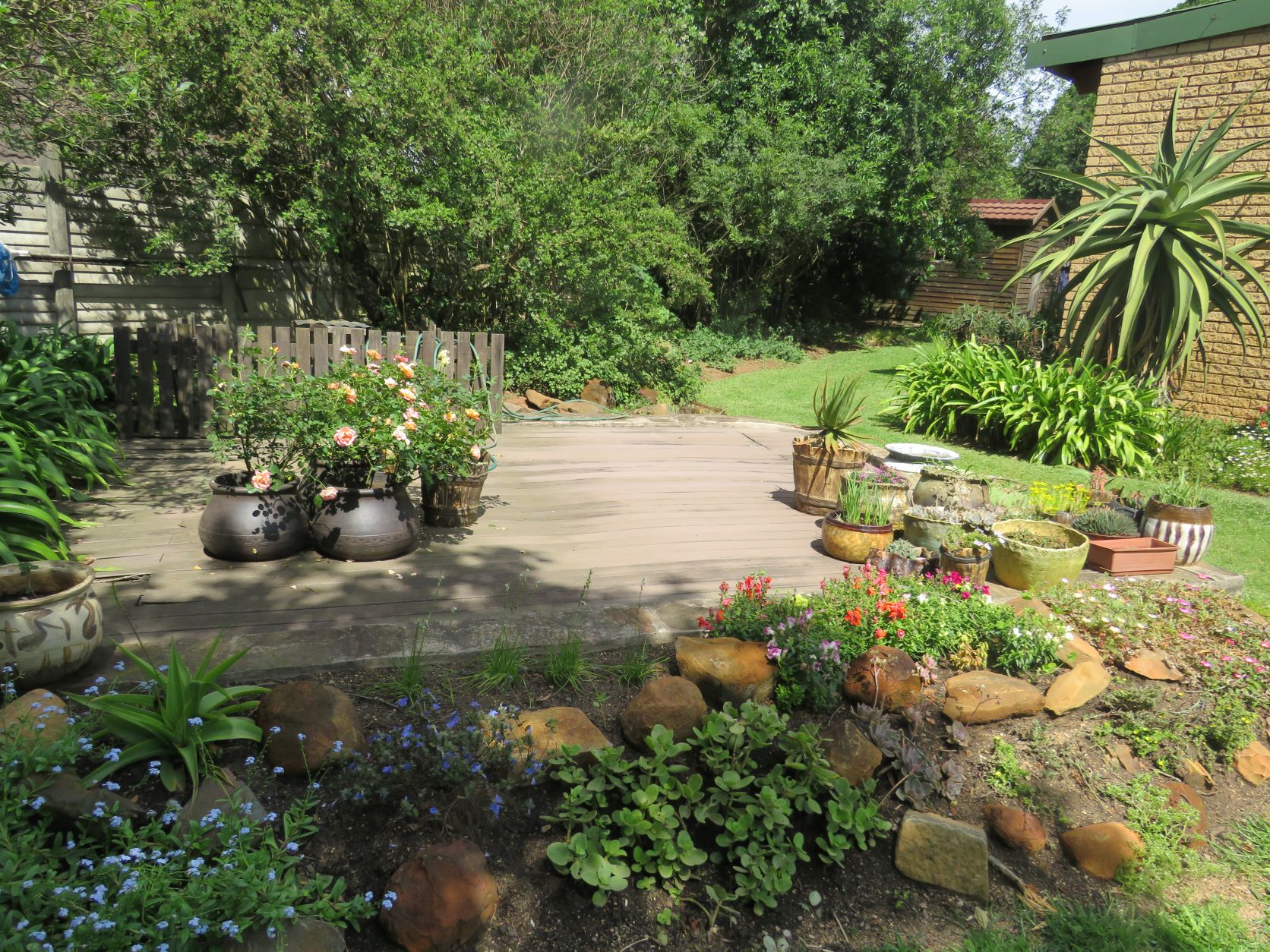
We aim to avoid plastic in water by harvesting the rain; many of these noxious chemicals come from what we drink.
It will also help protect us from the neurodegenerative diseases that are growing so fast. One in 9 Americans over the age of 65 is now showing signs of dementia. Research showing how much plastic is passing through the protective human blood-brain barrier is scary; ten times as much in those suffering from the loss of ability to reason, do basic problem solving and conduct normal voluntary movements.
He gives food in abundance
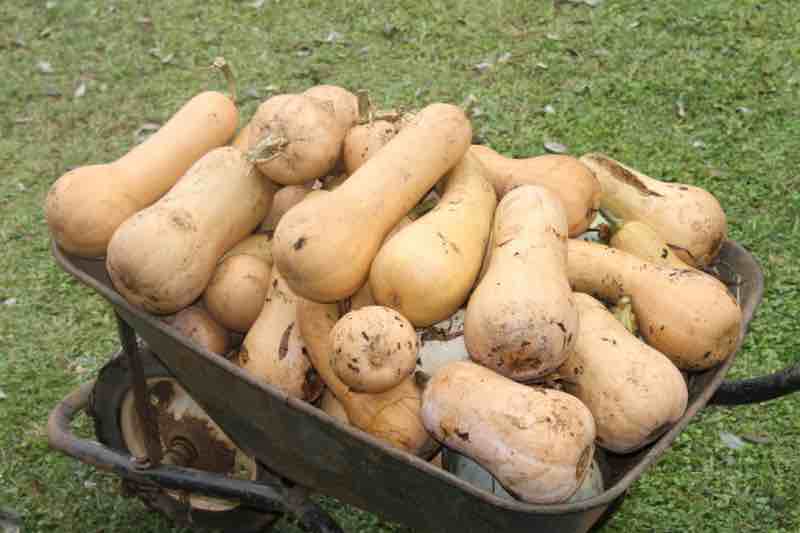
water scarcity?
Are the cities of South Africa water-scarce? Our experience is that in the main we are able to provide for almost all of our needs.
When browsing use right click and "Open Link in New Tab" or you may get a bad gateway signal.
The material expressed on this page is gleaned from the nutritional and environmental literature; it is clearly referenced. A plain distinction is made between the author's opinion and that which is scientifically proven. When in doubt consult your health professional.
To suggest a correction or clarification, write to Dr Bernard Preston here. Contact.
Newsletter
Our newsletter is entitled "create a cyan zone" at your home, preserving both yourself and Mother Earth for future generations; and the family too, of course. We promise not to spam you with daily emails promoting various products. You may get an occasional nudge to buy one of my books.
Here are the back issues.
- Lifestyle and ideal body weight
- What are ultra-processed foods?
- Investing in long-term health
- Diseases from plastic exposure
- Intensive lifestyle management for obesity has limited value
- A world largely devoid of Parkinson's Disease
- The impact of friendly bacteria in the tum on the prevention of cancer
- There's a hole in the bucket
- Everyone is talking about weight loss drugs
- Pull the sweet tooth
- If you suffer from heartburn plant a susu
- Refined maize meal and stunting
- Should agriculture and industry get priority for water and electricity?
- Nature is calling
- Mill your own flour
- Bake your own sourdough bread
- Microplastics from our water
- Alternative types of water storage
- Wear your clothes out
- Comfort foods
- Create a bee-friendly environment
- Go to bed slightly hungry
- Keep bees
- Blue zone folk are religious
- Reduce plastic waste
- Family is important
- What can go in compost?
- Grow broad beans for longevity
- Harvest and store sunshine
- Blue zone exercise
- Harvest and store your rainwater
- Create a cyan zone at your home
Did you find this page interesting? How about forwarding it to a friendly book or food junkie? Better still, a social media tick would help.
- Homepage
- Our green rainwater
Address:
56 Groenekloof Rd,
Hilton, KZN
South Africa
Website:
https://www.bernard-preston.com